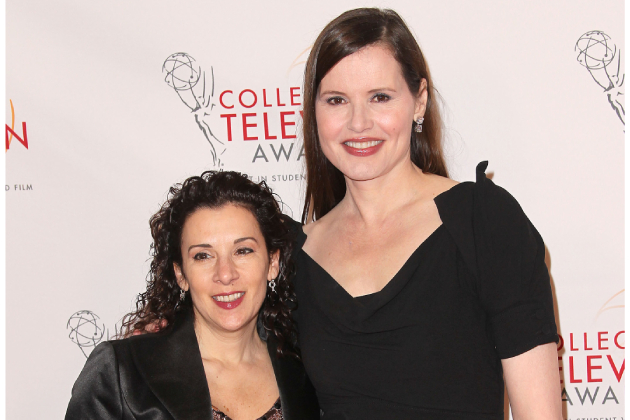NEW ORLEANS – The myriad attempts to attract millennial viewers to linear in the wake of the digital revolution have been well reported. But during a panel discussion at the 2019 Realscreen Summit in New Orleans, high-level execs discussed another big area of concern when it comes to that demographic — having it represented behind the scenes.
In a Tuesday (Jan. 29) afternoon session titled “Fighting the Brain Drain”, panelists explored whether the television industry has a branding problem and whether online video platforms offer more opportunity creatively and financially to younger content creators.
The panel, moderated by Evan Shapiro, principal of eshapTV, and featuring Lucas Green, head of content at Banijay Group; Candace Rice of MTV’s Floribama Shore; Alec Shankman,
SVP, head of alternative programming, digital media, licensing & branding at Abrams Artists Agency; and Pam Silverstein, supervising producer film & TV at Shopify Studios, provided key takeaways about what the immediate future of the genre will look like:
Think inside the box
The unscripted television industry has for years attempted to bring influencers, with their millions of social followers, to the small screen. The unfortunate truth, however, is that the crossover is one that rarely works for the network. So what’s the greatest challenge of taking someone who comes from self-driven media and finding a format that works for them? How do you take somebody that doesn’t want to be put in a box and put them there?
Silverstein offers a simple solution: create in a space that that influencer does want to be in. For Silverstein and the newly minted Shopify Studios, it’s about telling stories that each digital star wants to be associated with or sharing their stories.
“Make it something they want to do,” she said. “You want to be able to have an opportunity to control your narrative. It’s working with that creator from the beginning, being on the same page of the story you want to tell and being comfortable in that box.”
Acknowledging that producers require different skills to tell stories in short-form digital and long-form linear is incredibly important, says Banijay’s Green, as they are “very different types of content, watched and consumed in very different ways.”
“The other part of this discussion is about how we tackle the brain drain of the off-camera talent,” he says. “Increasingly our clients will say bring us the big name… but you have to make sure the teams we are nurturing and supporting behind the camera have the right skills and voice to be able to reflect what viewers want.”
A hope for mainstream
Though casting digital talent in non-fiction programming may be hit or miss, it’s not for lack of trying. Social influencers like Floribama Shore‘s Rice are wary of completely abandoning television and moving specifically into self-made digital media, despite the wide disparity in revenue shares.
“If I had the perfect way of shaping my career, I’d love to be on TV and have a platform where I could control the creative direction of things,” the MTV reality star said. “There’s still an audience you can reach at home who aren’t on digital, and it’s also cool to see yourself on TV. I still think that regardless of if you have one million followers and tons of engagement, you want to be on TV.”
And production houses such as Banijay see the influx of social media influencers with their large followings as an opportunity to build out profitable formats, with one caveat.
“Our strategy is always to put creativity front and center,” Green explained. “It’s a big part of our company where all of our leaders and managing directors are producers and creators. We want creativity to be at the heart. If those influencers are creative, then we’d absolutely want to build shows around them.”
And on the other hand…
While some influencers like Rice have a strong desire to focus on both entertainment mediums, others may not be so open to crossover into the television landscape.
Abrams Artists Agency’s Shankman argued that the business affairs side of entertainment has failed to evolve. To prove his point, the agent detailed a hypothetical situation in which a successful YouTube or Instagram influencer is making millions of dollars and controls their audience and creative, owns their content, dictates their success and lives in a world where with zero exclusivity.
“That’s pretty awesome,” he said. “If you go to linear where somebody else controls creative, owns content, dictates the terms of your exclusivity and gives you a lot less money, the question is why the hell would you ever consider doing that?
“When you’re trying to put a deal in place to do television, the terms of those deals haven’t caught up with the reality of media. If you look at someone who makes $3 million on YouTube through brand sponsoring, and you say to them ‘You’re now exclusive in all media and you have to run every brand opportunity by us to make $2,500 an episode,’ that’s where it breaks.”
The next great source of digital IP
The podcast ecosystem has been around for the last decade, though the economics of the audio space currently make it difficult to be profitable.
If you can crack the podcasting code, said Green, it’s a medium that teaches beneficial storytelling skills.
“It’s a great way to find new talent, spot subject matter and try things out, and if we’re going to invest heavily in this as a TV format, we can look at how the podcast’s done and invest in it that way.”
“It’s a great way to get something on its feet quickly, experiment with it and get information back on what works and what doesn’t without having to shoot a pilot. And if you can build an audience, it gives you leverage as you’re selling [the TV adaptation],” Shapiro agreed.






























